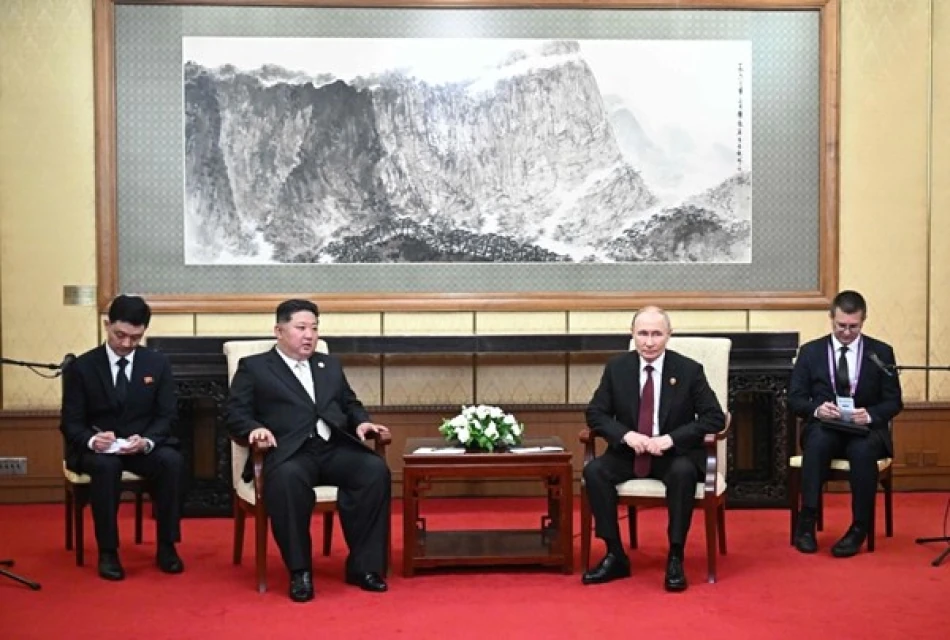
Putin and Kim's High-Stakes Summit Kicks Off in China
Putin and Kim Jong Un Hold High-Stakes Beijing Summit Amid Global Tensions
Russian President Vladimir Putin and North Korean leader Kim Jong Un conducted bilateral talks in Beijing following a massive military parade, signaling a deepening alliance between two of the world's most isolated regimes. The meeting, held at the prestigious Diaoyutai State Guesthouse, underscores Russia's growing reliance on unconventional partnerships as Western sanctions continue to bite.
A Display of Unity in China's Capital
The two leaders made their diplomatic intentions clear by attending a large-scale military demonstration in central Beijing before retreating to formal negotiations. According to the Kremlin's social media posts, Putin and Kim traveled together in the same vehicle from the official reception to their private talks—a symbolic gesture that speaks volumes about their growing personal and political rapport.
Strategic Timing and Location
The choice of Beijing as the meeting venue is no coincidence. China's capital provides both leaders with a neutral yet sympathetic backdrop for their discussions, while allowing Beijing to position itself as a power broker in the emerging multipolar world order. The timing also coincides with increased Western pressure on both Moscow and Pyongyang over their respective military actions and nuclear programs.
What This Means for Global Markets
This summit carries significant implications for international commodity markets and defense sectors. Russia's deepening ties with North Korea could potentially open new channels for resource sharing and military cooperation, affecting everything from energy prices to rare earth minerals. Investors should monitor developments in sectors exposed to sanctions risk, particularly in technology and defense industries.
Historical Precedent and Modern Reality
The Putin-Kim relationship echoes Cold War-era partnerships, but with distinctly 21st-century characteristics. Unlike the ideological alliances of the Soviet period, this partnership appears driven by pragmatic necessity—Russia needs allies willing to circumvent Western sanctions, while North Korea seeks security guarantees and economic lifelines.
Implications for Regional Security
The summit likely addressed several critical issues, including potential military cooperation, economic partnerships, and coordinated responses to Western sanctions. For South Korea, Japan, and the United States, this meeting represents a consolidation of adversarial forces that could complicate diplomatic efforts in both the Korean Peninsula and Ukraine conflicts.
The image of two heavily sanctioned leaders sharing transportation and military ceremonies sends a clear message to Washington and its allies: isolation strategies may be pushing targeted nations closer together rather than forcing policy changes. This dynamic could reshape how Western powers approach future sanctions regimes and diplomatic isolation tactics.
Most Viewed News

 Layla Al Mansoori
Layla Al Mansoori






